

In news that has sent shockwaves across the Australian music industry, beloved festival Bluesfest has been cancelled following its 2025 event.
Earlier this year, Splendour In The Grass was cancelled on Wednesday — just two weeks after it announced its stacked 2024 lineup. The devastating blow is just the latest in a series of Australian festivals to bite the dust. What is going on?
Let’s have a look at which festivals have been nixed over the last few years.
Bluesfest was cancelled in 2024 for undisclosed reasons

Bluesfest — one of Australia’s longest-running festivals — announced on August 14 that it would be closing its tent doors following the event in 2025.
Festival director Peter Noble released a statement announcing the closure and his intent to make the 2025 festival the best one yet.
“Bluesfest has been a labour of love, a celebration of music, community, and the resilient spirit of our fans but after the 2025 festival, as much as it pains me to say this, it’s time to close this chapter,” he said in a statement.
“Next year’s festival will be happening, but it will be our last. I want to make it the most unforgettable experience yet.
“To my dear Bluesfest family: I want to make it the most unforgettable experience yet. If you’ve been thinking about it, now is your last chance to experience our beloved festival.
Noble did not elaborate on why the festival was closing, but he did tell Financial Review he’d rather end on a high.
“I’d rather go out on top than produce a shadow of what Bluesfest is,” he said.
Splendour In The Grass was cancelled in 2024 “due to unexpected events”
Held in northern NSW each July, Splendour In The Grass is the biggest music festival in Australia and has welcomed acts like Coldplay, Florence and the Machine, Outkast, Lorde, Tame Impala, Flume, and The Killers.
Organisers said the festival was cancelled “due to unexpected events” and did not elaborate.
Its demise might seem like it’s come out of nowhere — and in a lot of ways, it has — but it appears this is fast becoming a concerning trend in Australia given a heap of festivals have been cancelled in recent years.
According to lecturers Sam Whiting and Ben Green, rapidly increasing overhead costs of holding festivals (like increasingly expensive public liability insurance costs and the cost of hiring police), low ticket sales and the pandemic are just some of the reasons it’s become a lot harder to keep a festival afloat.
Greens senator Sarah Hanson-Young linked the cancellation of festivals to the cost of living crisis.
Let’s take a look at some of the most recent festival cancellations and why organisers had to ditch them.

Groovin The Moo was cancelled in 2024 because of poor ticket sales
Groovin The Moo, the annual regional festival that was set to visit Wayville, Bendigo, Canberra, Newcastle, the Sunshine Coast, and Bunbury over three weeks in April and May, was cancelled on 14 February this year just two weeks after tickets went on sale.
Organisers cited poor sales as the reason the festival would be cancelled, and the news marked the first time in its two-decade history that the event wasn’t able to continue (not including COVID-19 cancellations).
“We are extremely disappointed to announce that the Groovin the Moo 2024 tour has been forced to cancel,” festival organisers said in a statement on Instagram.
“Ticket sales have not been sufficient to deliver a regional festival of this kind. All tickets will be refunded automatically.
“Thank you to everybody who has supported the festival. We hope to be able to bring Groovin the Moo back to regional communities in the future.”
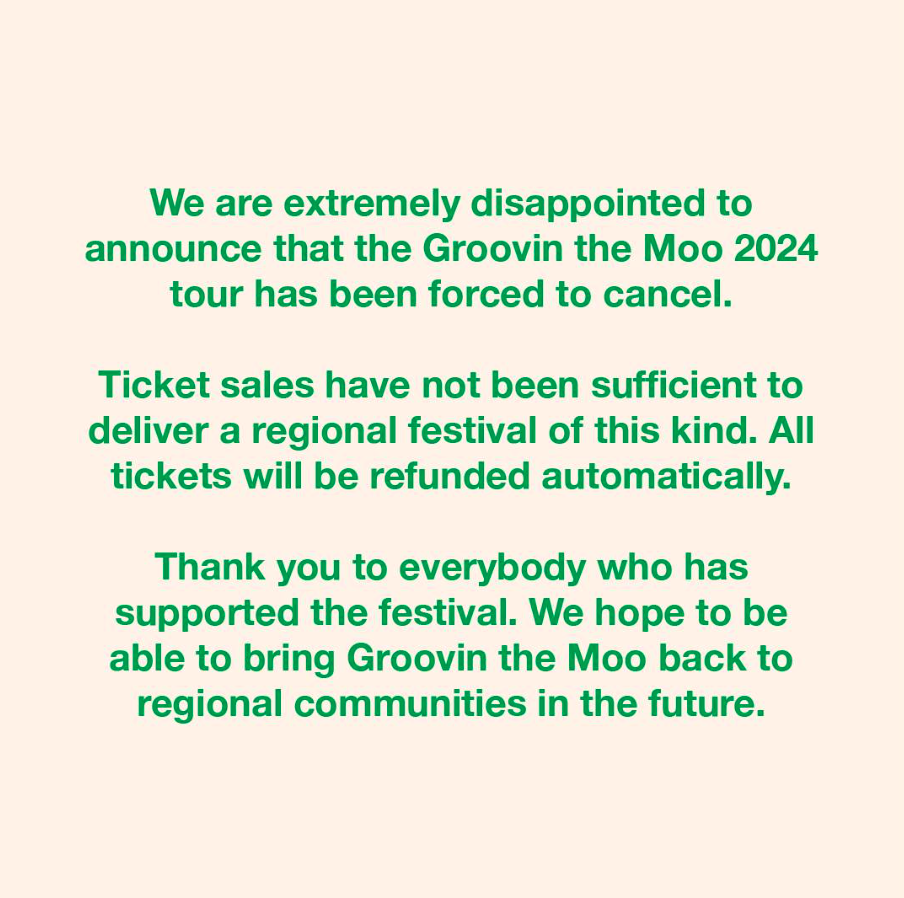
The cancellation of the festival was a blow to regional communities, who often don’t get to see big acts. Regional businesses also rely on the festival and the punters that come down to see it for a tourism boost.
Falls Festival was cancelled in 2022 after COVID-19 blows
Falls Festival had back-to-back years off due COVID lockdowns and returned in 2022, only to announce that its 2023 iteration was cancelled and organisers were taking time off to “rest, recover and recalibrate.”
The 2022 lineup brought the likes of Lil Nas X, Arctic Monkeys and the OG Wiggles Down Under, so it’s cancellation came as a shock.
Secret Sounds co-CEO and Falls producer Jessica Ducrou said the team was going to re-imagine what the festival would look like in this uncertain future.
“The past few years has seen unprecedented change in the live music space, both front of house and behind the scenes,” she said, per Triple J.
“While Falls’ reboot in 2022/23 was full of amazing moments and we were thrilled to reconnect with our Falls Fam, our team needs a break, so this year we’ll take time off to enjoy the holiday period and allow some space to re-imagine how Falls will look in the future.”
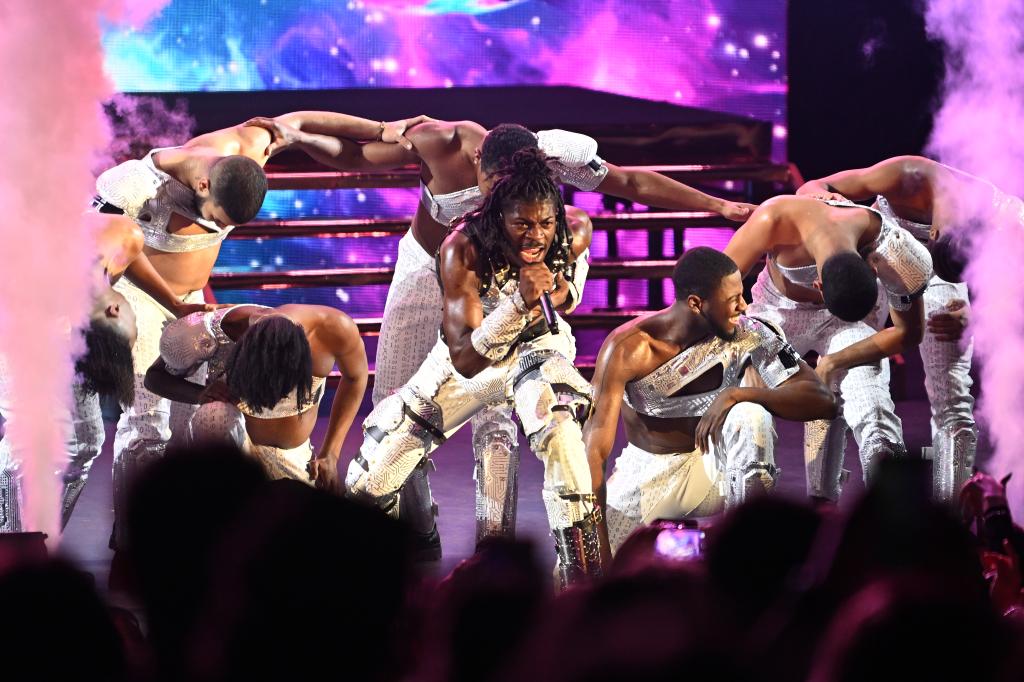
Its cancellation also came amidst a battle for a new venue that led the festival to Melbourne’s inner-city.
“Given the time and expense, we have decided to withdraw from the approval process,” Ducrou said of a battle organisers were fighting to secure the location.
“The festival industry is recovering from the pandemic and a long, expensive process pursuing this application is something we’ll need to reassess in the new year.”
FOMO was cancelled in 2020 after it went into liquidation
FOMO, which hosted Nicki Minaj at Parramatta Park (I’m still reeling from that one) went into liquidation in 2020 with around $5 million in debt.
The festival’s social media pages were abruptly shut down, and employees and unpaid creditors were laid off.
Former employees told Hack that part of the reason the festival went under was because of COVID-19 and the bushfires, as well as low ticket sales, little money, and a failed deal with Live Nation.
Mountain Sounds was cancelled in 2019 over NSW’s strict festival legislation
Mountain Sounds was cancelled just a week before it was set to begin in February 19 after organisers said was because of “further conditions and financial obligations [being] imposed on the festival which were impossible to meet.”
“We can’t begin to express our sadness in having to cancel the event, particularly this close to it,” they said in a lengthy statement.
“The combination of excessive costs, additional licensing conditions and the enforcement of a stricter timeline left us no option but to cancel the event.”
“We, like many of you, have seen the festival climate continue to diminish in Australia. NSW in particular is in dire straits. This is yet another example of the government’s war on festivals.”
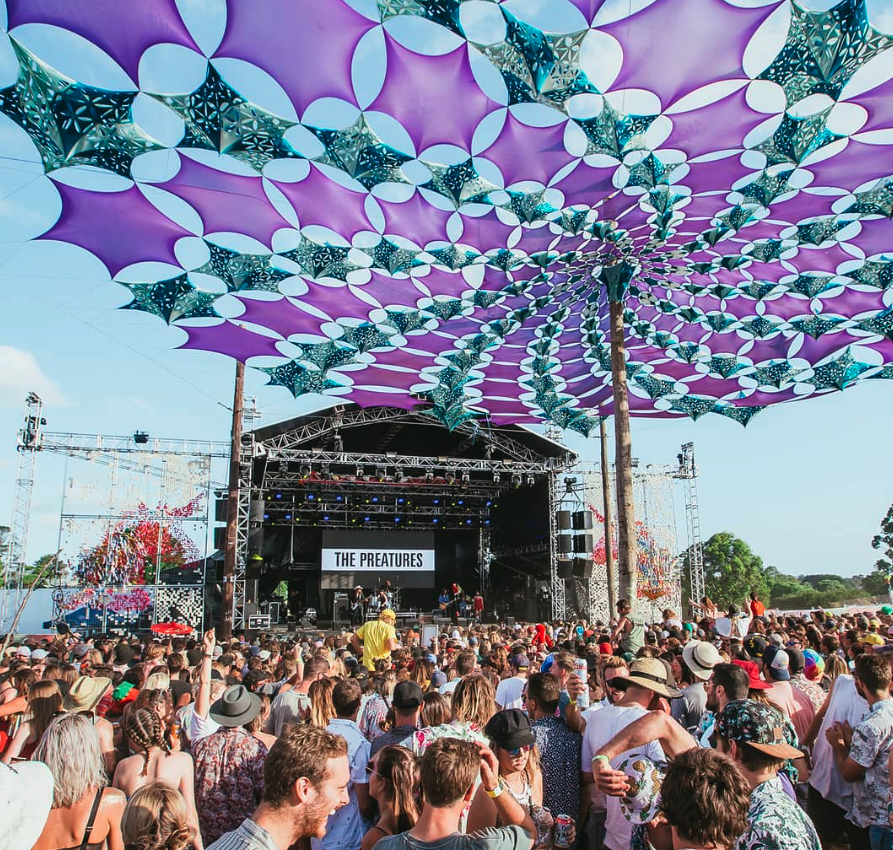
Mountain Sounds was told that it would need to pay NSW Police an additional $200,000 for a police presence of 45 user pay officers on a 24hr cycle.
“This came one week out from the festival and blindsided us as we were quoted for 11 user pay police on 18 January,” organisers said.
All this came off the back of the Gladys Berejiklian government’s new NSW festival licensing laws, which required organisers to apply for a specific liquor license (similar to those in pubs and clubs) for each music festival they host.
Mountain Sounds slammed the “exorbitant costs” it and other festivals were expected to cop in order to host their event.
In the same month, Rabbits Eat Lettuce relocated its festival to Queensland after it found “the current political state of play in NSW is not conducive to the festival industry.” Blue Mountains festival Psyfari also cancelled because of what it called the NSW government’s “war on festivals”.
Stereosonic was cancelled in 2016
Stereosonic went on “hiatus” in 2016 and never returned.
“Totem Onelove Group is currently working on bringing Stereosonic fans the best festival experience possible. As part of this, we are taking a hiatus during 2016. However, we will return in 2017, bigger and better,” the company announced on Facebook.
While a reason for the festival’s cancellation was never given, it was heavily speculated that it was to do with the Totem Onelove Group’s dire financial situation.
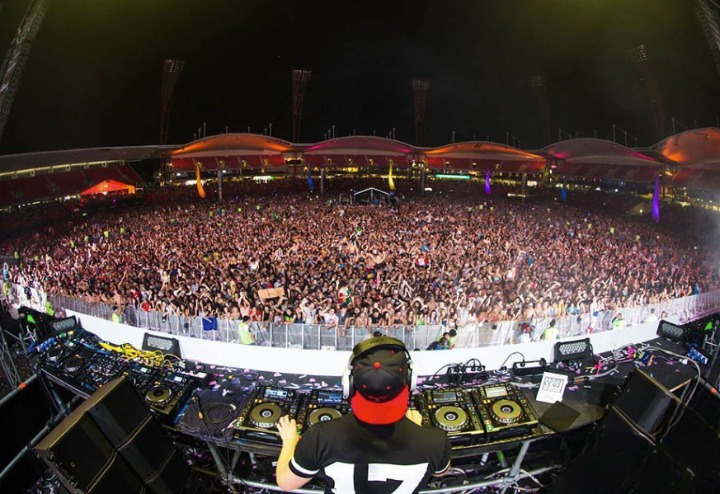
Future Festival was cancelled in 2015
Future Festival organisers announced just a month after the 2015 event that it would no longer take place because of low ticket sales.
“It’s been a difficult decision to make but in the end travelling the festival in its current form across Australia simply doesn’t make financial sense anymore,” promoter Mushroom Group said in a statement.
Brett Robinson, who ran the festival for 10 years, told the Sydney Morning Herald the festival was “more than 30 per cent off where we wanted to be” in terms of ticket sales.
“If we can’t get [the required] attendances it is untenable,” he said.
“We all have to move on. It’s a really sad day for me personally and all of our team, we would live eat and breathe this festival around the clock.”
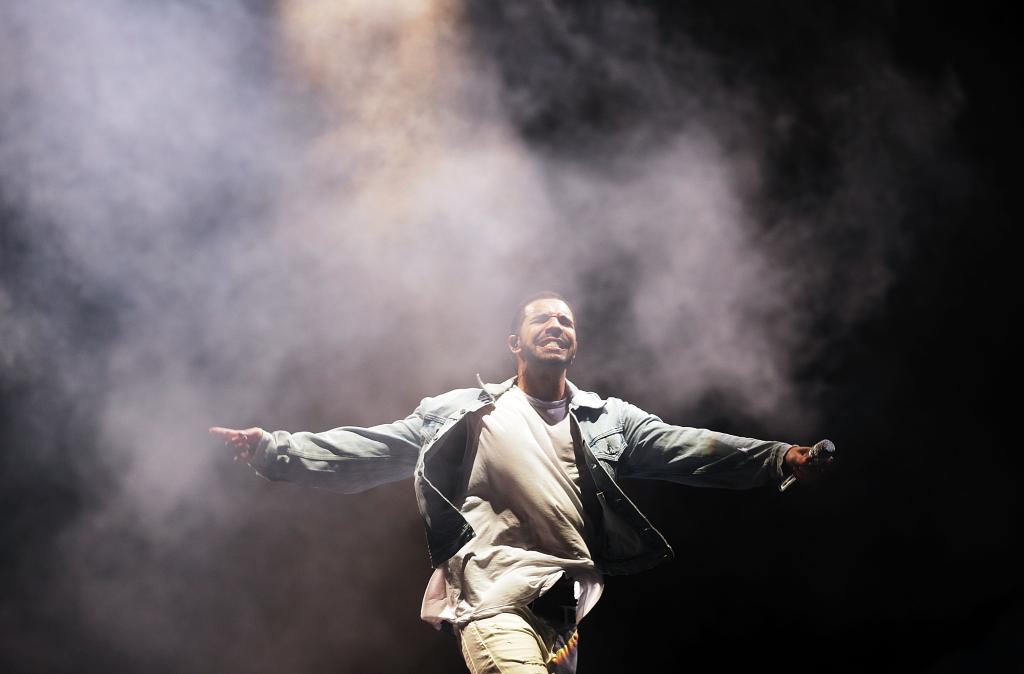
Mushroom Group chairman Michael Gudinski said it’s just become too expensive to host a good festival.
“The cost to physically stage the events has significantly increased, even in just two years. The fluctuating dollar also hasn’t helped and the increasing popularity of EDM in the States has seen DJ fees escalating out of control,” he told themusic.com.au.
Big Day Out was cancelled in 2014 over poor ticket sales and other controversies
Big Day Out, Australia’s first annual music festival, was at one point the biggest touring festival in the world. It hosted the likes of Nirvana, Pearl Jam, Björk, Foo Fighters and blink-182.
However, it’s fall from grace took place in 2014, when headlining act Blur pulled out just two months before the first show because of “constantly shifting goalposts and challenging conditions of the organisers”.
That year also saw poor ticket sales with only about half the number of attendees as the previous year.
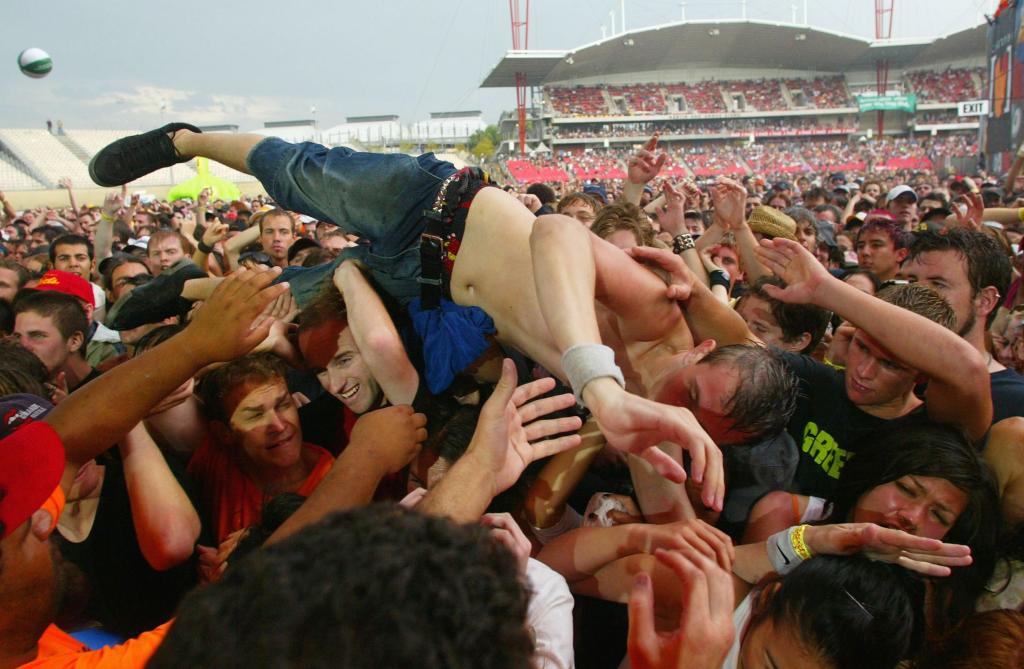
After that, Big Day Out’s American promoters C3 announced there would be no festival in 2015, but they didn’t cite a specific reason.
Now, these are just a few of the bigger Australian music festivals that have been cancelled in recent years — according to this paper, more than 20 Australian festivals were cancelled because of extreme weather in just 2022 alone.
It’s clearly a turbulent time for the Australian music scene. The question is, will our government and economy recover soon enough to save it?
Image: Getty
The post Off The Back Of Bluesfest & Splendour, Here’s A List Of Aussie Music Festivals That Have Been Axed appeared first on PEDESTRIAN.TV .







